ROSARITO BEACH
As the coronavirus overwhelms hospitals in Baja California, U.S. citizens living south of the border are deciding whether to return to the United States or ride out the pandemic in Mexico.
Last month, the U.S. State Department issued an extraordinary advisory urging all citizens abroad to return to the United States if they can. The Level 4 travel advisory issued worldwide was the most severe warning ever issued by the department.
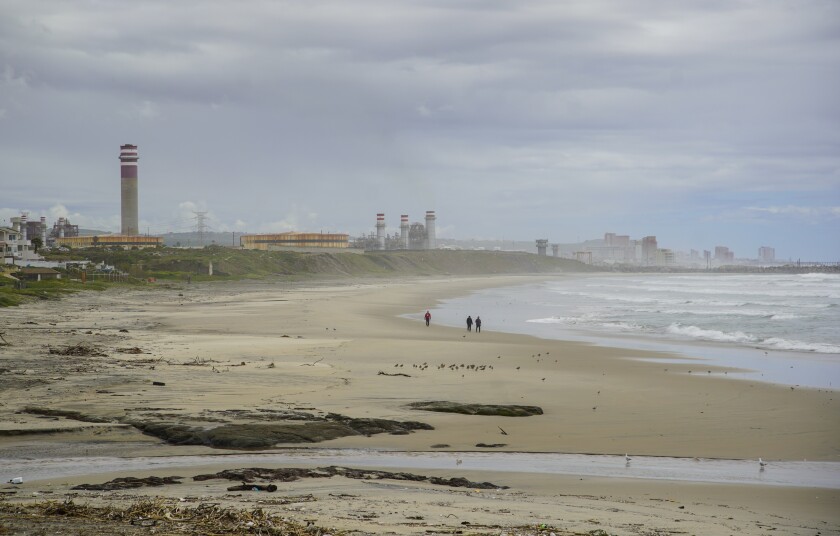
“It’s time to go home,” Christopher Landau, the United States ambassador to Mexico, told U.S. citizens in Mexico during a town hall via Facebook Live on March 31.
Since that terse warning, conditions have dramatically changed in Baja California with the number of confirmed cases growing from 31 on March 31 to 725 on Sunday. Public hospitals have buckled under suspected coronavirus cases and the death toll has risen to 83.
Late last week, Landau repeated the warning in a video posted to social media.
Sue Saarnio, the Consul General at the U.S. Consulate General in Tijuana said in a video posted to social media that her department is “closely monitoring the conditions in Mexico and around the world.”
“If you are a U.S. citizen who normally resides in the United States, you should arrange for your immediate return unless you are prepared to remain in Mexico for an indefinite period,” Saarnio said earlier this month.
Approximately 1.5 million U.S. citizens live permanently in Mexico and many have put down roots in Baja California’s coastal cities, such as Rosarito Beach, where city officials estimate approximately 15,000 of them live about 20 miles south of the border.
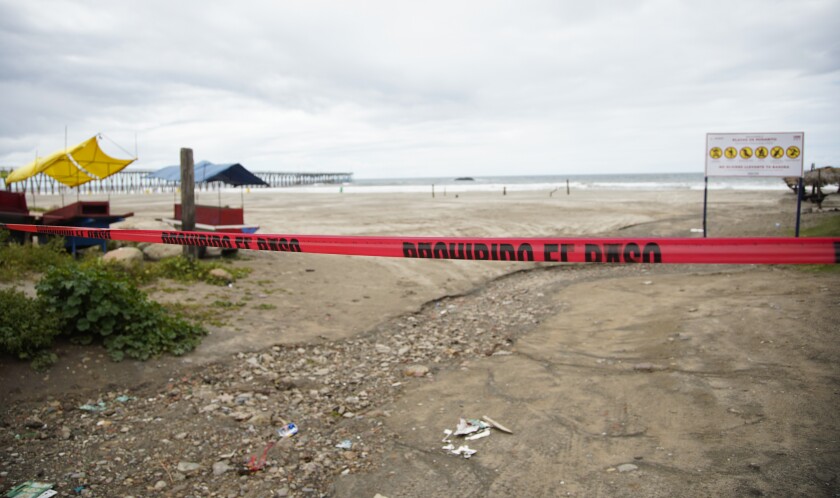
Robert C. Smith, 61, is a retired San Diego police officer who has lived in Rosarito Beach for the past nine years. Smith said he did extensive research about the coronavirus and decided to stay in his beach house.
“What happens if I get a bad cough? I’m an American citizen. I’m going to drive across the border and go to Scripps,” said Smith, who has experience serving as a medical technician in the Navy.
Smith said when he broke his leg in Rosarito Beach four years ago, the medical care he received was excellent and low-cost.
“They treated me perfectly, and I know emergency medicine,” he said.
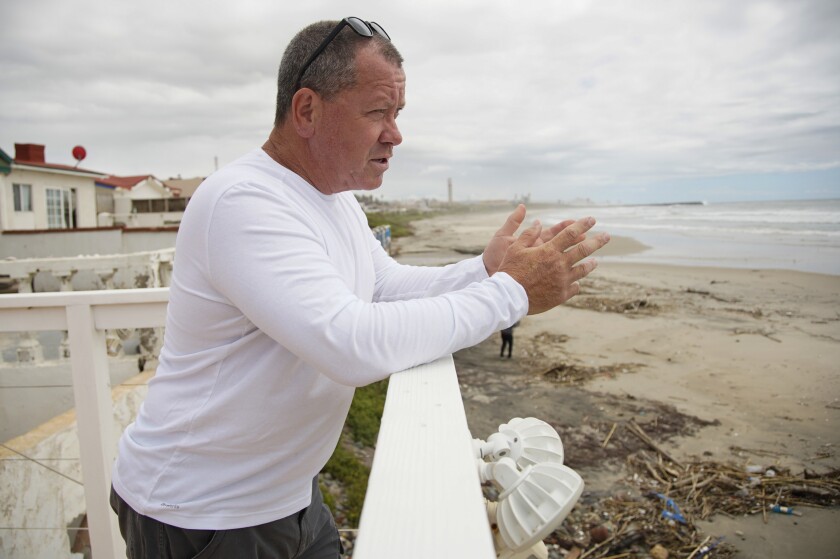
Some medical workers say Baja California hospitals have been overwhelmed in recent days, almost running out of ventilators and room for patients. At least 22 health care professionals have tested positive for COVID-19 in Baja California, and two were in the intensive care, federal health officials confirmed Wednesday.
Hospital General of Rosarito had only one ventilator available as of Thursday, but Baja California state heath officials said they were in the process of borrowing more, and that the machines could be moved from hospital to hospital.
“I think if we would have had to fly, we would have gone, but since we’re only about a 20-minute drive to the border, I think we’ll be fine,” said Jim Khorey, a U.S. citizen resident who was out for a walk through Rosarito Beach’s abandoned tourist area last week.
Several U.S. citizens who decided to stay in Mexico told the Union-Tribune they are taking the country’s “stay-at-home” orders very seriously after watching what has happened in New York and Los Angeles.
Smith and others stressed the importance of purchasing supplemental transportation insurance, which allows U.S. citizens to be medically transported back to the border in the event of an emergency.
Landau indicated citizens arriving at the border would be accepted by U.S. border agents, but they may face mandatory quarantines, depending on how severe the pandemic becomes.
Without it, industry experts said patients may be asked to pay up-front costs of medical care in Mexico or ambulance rides to the border, which can cost between $800 and $1,000.
On Rosarito Beach’s tourist strip, empty beach clubs are cordoned off with caution tape and streets deserted. Some taco shops and restaurants remain open, but employees said the tables had been moved to allow for more than 6 feet of space between all customers.
“It’s not necessary because there’s no one coming in, but that’s the way it is,” said 15-year-old Carlos Gastelum, who said he normally works in the area as a busboy or server. “Almost everything is closed. There’s no work right now.”
Gastelum said he worried about how he was going to be able to buy enough food if the closure orders and distancing restrictions continue for months.
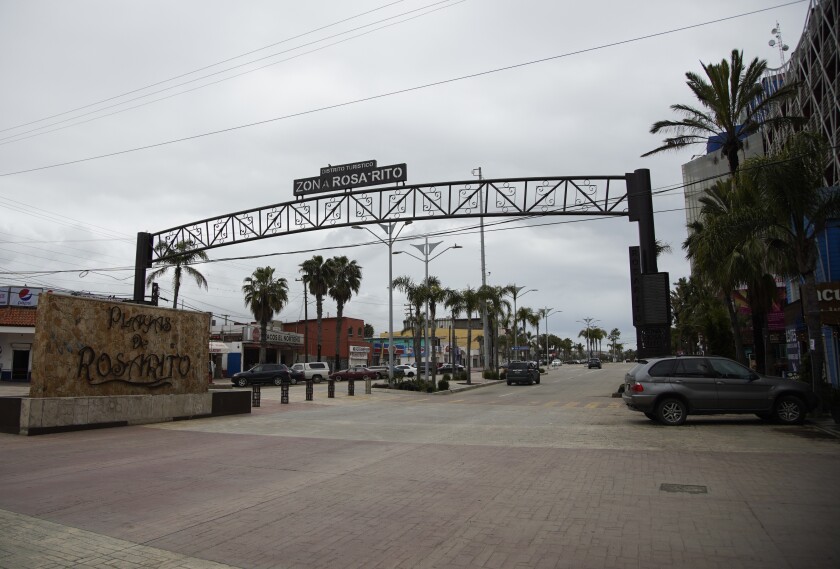
Dana Crawford, 31, who has a permanent home in Reno, Nevada, said she and her family spend several winter months a year in La Ventana, a small, fishing village in Baja California Sur.
She said she made the decision to return home after seeing and hearing some of the warnings from the State Department.
“If the worst happened, and we did have to be hospitalized, we did not want to be a burden or be taking away those resources from the locals,” said Crawford. “It felt like the respectful thing to do was to remove ourselves from a fragile system.”
But some who decided to stay used the same argument of wanting to support their local community. Smith said he wanted to continue spending locally on groceries and other essential goods to help the Rosarito Beach economy recover, however, he could.
“If I left here, no one would notice I’m gone. But, I do my laundry here. I buy my groceries here, so if I leave, I’m just one person, but if everyone leaves, that’s a huge ripple effect in the economy on a totally different level than in the U.S.,” said Smith.
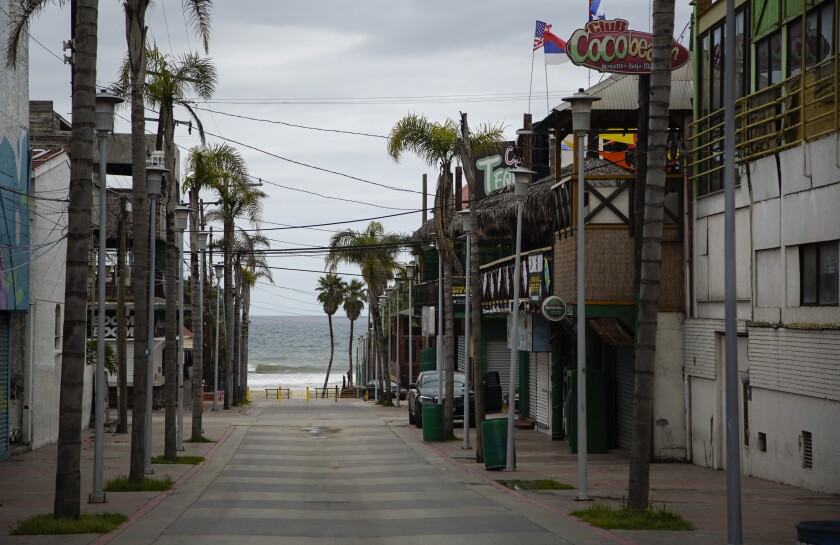
Baja California, which borders San Diego, is among the states hardest hit by the coronavirus in Mexico.
Rosarito Beach has not seen as many cases with only 10 confirmed out of the state’s total of 725 as of Sunday.
However, health experts consider the number of documented cases to be only a fraction of the total actual cases because of severely limited testing.
Hugo López-Gatell Ramírez, a Mexican epidemiologist who serves as the country’s undersecretary of health promotion and prevention, said the number of actual cases on a federal level were “with reasonable certainty” more than nine times the reported confirmed cases.
State Department officials urged U.S. citizens who have decided to stay in Mexico to enroll in their STEP program, which stands for Smart Traveler Enrollment Program.
The service will allow the U.S. Embassy to contact citizens living in Mexico in the event of civil unrest or a natural disaster.
Source: sandiegouniontribune.com
The Mazatlan Post





